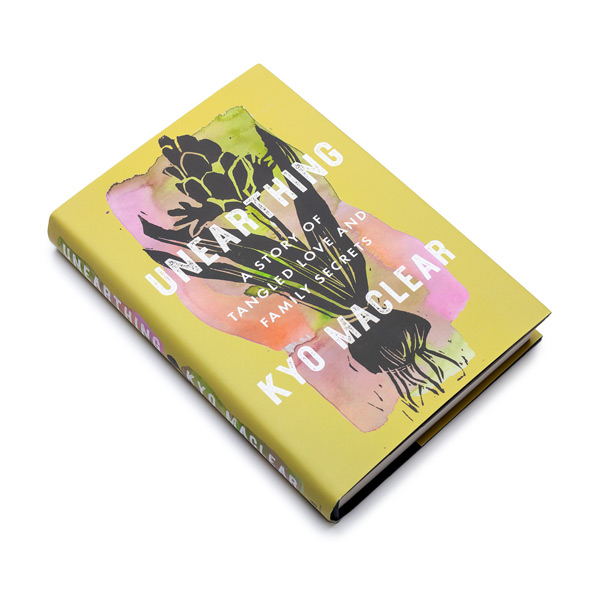When I started working on the Vietnam section of this novel, I embarked on a period of research. I read everything from David Halberstam’s The Best and the Brightest to Michael Herr’s Dispatches to Bao Ninh’s The Sorrow of War. I watched a few epic movies and several lesser known films, such as Winter Soldier and Sad Song of Yellow Skin. After I had made my way through the secondary sources, I set about doing some primary research. I exchanged emails with Peter Arnett about his experience living with his family in Saigon during the war. I traveled to Vietnam where I hired a guide through a state-run travel agency to take me to locations that would have existed in the early 1960s.
It was only after I had completed this flurry of research that I, finally, and with some apprehension, decided to interview my father. First of all let me say that what surprised me most about my father’s responses to my questions was his candor. We may be a loving family but we are not a particularly candid one, especially when it comes to talking about the past. In fact, for most of my childhood in Canada I knew so little about where my parents came from and what they had experienced growing up in England and Japan, that I used to imagine that they had been birthed by airplanes.
Any information I have about my father’s childhood is scant. I know he was born in 1929, the year of the stock market crash. I know that he grew up during the Depression years. I know that he was a child of the Blitz, growing up in the rubble of a city that had been bombed and blazed; that he saw at least one foster-home demolished in the Blitz under a storm of incendiaries… And that’s about the sum of it.
Ryszard Kapuchinski, the wonderful Polish author and reporter, once wrote: “A person who lived through a great war is different from someone who never lived through any war. They are two different species of human beings. They will never find a common language.” On the one hand, I find this quote completely compelling (Kapuchinski had a knack for the bold statement); on the other hand, I can’t fully accept it. As a writer and as a daughter, I suppose I need to believe that the gaps between people can be bridged. We try and imagine, even when words fail. We take risks and break our outer shells, for love.
Every family has its gaps. My father, for example, had very little concept of what my world was like growing up as a young mixed race kid in a white middle class neighborhood in 1970s Toronto. And I certainly had no concept of what his life was like living through multiple wars. But I think it’s important to envision a conversation (however indirectly or obliquely) happening across some of those familial silences.
I think my father would agree. When I sent him my list of questions, he replied almost immediately. His written responses are excerpted in part below.
Interview with a War Correspondent (Michael Maclear)
In your own experience was there a pivotal moment or personal/professional epiphany that led to our decision to become a war correspondent?
Maybe epiphany for so-called war correspondents comes with adolescence after a bruised childhood when the state of mind is that there can be nothing more to lose, and that risk is change, betterment, or at very least self-decision, control of one’s affairs. I suspect most “war correspondents” who really have a reputation for war coverage would be found to have grown up through unending family strife or domestic wars, thus desensitized, perhaps hardened, certainly seldom surprised by the excesses of human nature—in short, qualified for larger wars. And after all, to whatever degree, childhood does condition adulthood.
Oddly, because of a likely twisted childhood, our fictional war correspondent is just about the one person you can trust in the barest of situations. Such is reality.
What would you say are the attributes of a good war reporter?
Ultimately the reporter is a complete paradox: a chronic rish-taker reporting on the risks of war, a loner whom we all look to, someone hardened by life yet able to move us with a few words or images.
While the war correspondent by background is hardened enough to take on the job this doesn’t mean indifference to the suffering of war. And the more versed in the local history, the more this suffering will leave the correspondent conflicted (for some, slowly, agonizingly the shield of patriotism is stripped away and, yes, melancholia may well rot the soul because the individual war correspondent knows full well that alone he/she can change nothing.) This is the horror of the job: be you the trench-coat, war-is-heck type or this-war-is-wrong type, repeated for any length of time you become a caricature. The fiction is complete.
How, after a war, does one settle back into the comparatively petty concerns of everyday life back home? Can one bridge these two worlds?
It’s next to impossible—not just the contrast with combat but the switch between constant exotic travel and “normal” life. Hence, the broken marriage trail. But it’s too simple to blame the addiction on the action. In my theory, remember, the individual was likely screwed up long before becoming a war correspondent. But an equally numbing factor is the frustration of having seen the situation first-hand, seen the light or assumed to know the answers, only to discover that without an audience or platform your insights have no relevance.
Are war reporters permanently rewired by the experience?
Not really. What one brings to the job of war correspondent is an expectancy of the worst, and a suppression of emotions which, however, are never wholly under control. I remember in Hanoi in 1970 when a US air strike demolished the French embassy and we filmed body after body being pulled from the rubble, I was ashamed at my lack of emotion: there was just the job of describing it. Then our minder took us to an adjoining building where the body of the French consul-general was laid out, naked on the table, totally covered in 3rd degree burns from the air strike. My photographer began to point his camera but I told him No. No filming this.


